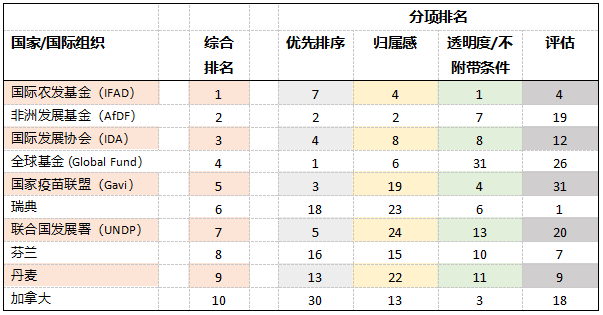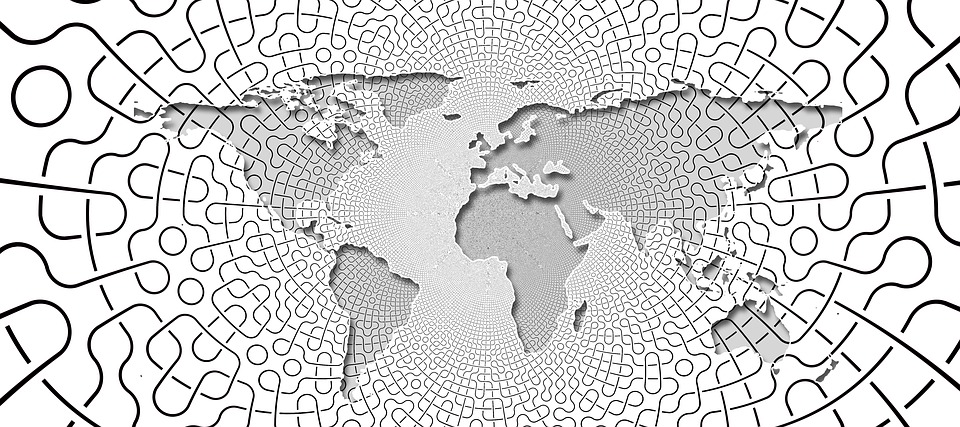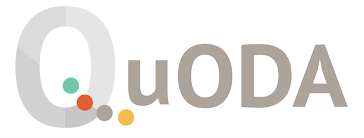Author: Julia Sun
The Quality of Official Development Assistance (QuODA) is a tool to measure and compare the official development assistance (ODA) performance of various countries. It covers the official development assistance of 29 member countries of the OECD Development Assistance Committee and 20 major international agencies. It is important for improving development effectiveness and Quality is of great importance.
Total words1615About4minutes
What is QuODA?
The Quality of Official Development Assistance (QuODA) is the Center for Global Development's tool for measuring and comparing the performance of official development assistance (ODA) across countries. QuODA encourages donor countries and international institutions to improve the quality of ODA by strengthening the performance evaluation of countries' official development assistance, which is of great significance to improving the effectiveness and quality of development.
Official development assistance (ODA) refers to official development assistance resources and technical assistance flowing to recipient countries and multilateral agencies of the OECD Development Assistance Committee (OECD DAC). Official development assistance is borne by the government, with the main goal of promoting economic development and welfare, and adopts preferential financial terms.
QuODA covers bilateral projects from 29 member countries of the OECD Development Assistance Committee, as well as multilateral projects from 20 major international agencies that provide official development assistance.
To facilitate cross-institutional comparisons, QuODA focuses on 17 indicators in four major areas:
- Prioritization: Measure how resources are allocated to address long-term development challenges;
- Belonging: cooperation between aid providers and recipient countries, and through recipient countries, in promoting recipients’ sense of belonging and access to national systems;
- Transparency and no strings attached: Measures the timeliness and comprehensiveness of reporting on ODA activities and whether procurement is tied to domestic contractors;
- Assessment: Measuring the quality of aid providers’ assessment and learning systems.
2021 QuODA Assessment Results
Top ten countries/international organizations

Performance of multilateral institutions
Multilateral institutions continued their excellent performance in this year's QuODA assessment, and their overall ranking was better than that of bilateral aid providers. Multilateral institutions occupy 6 seats in the top 10 and rank highly in three aspects: prioritization, sense of belonging and transparency, and no strings attached.
The International Fund for Agricultural Development (IFAD) ranked first in this year's QuODA assessment. It ranked in the top 10 in four categories, including No. 1 for "transparency and no strings attached." IFAD ranks fourth in both “Belonging” and “Evaluation” due to strong alignment with partner country goals and high-quality evaluation systems. It ranks seventh in "prioritization" and also scores highly on focus on poverty and the share of official development assistance among partner countries.
The African Development Fund (AfDF) ranked second overall, continuing its previous strong performance. Scores well on "prioritization" (ranked second), showing a strong focus on poverty and countries receiving the least aid. Of course, the AfDF still has room for improvement in terms of "evaluation." The World Bank's International Development Association (IDA) ranked third, scoring highly in all four areas. The Global Fund and Gavi, the Vaccine Alliance, ranked fourth and fifth respectively. Both score highly on "prioritization" but need to do better on "evaluation."
Official development assistance performance of various countries
This year's QuODA evaluation results show that Sweden's official development assistance performance ranks first among the 29 members of the Development Assistance Committee, followed by Finland, Denmark, Canada and Belgium.
Sweden excels in both “evaluation” and “transparency” areas, ranking first and sixth respectively. But its performance in "prioritization" and "belonging" needs improvement. Finland and Denmark rank second and third respectively among bilateral donors. Finland scores higher in all aspects, while Denmark performs well in the "assessment" aspect. Canada performed well in "transparency and no strings attached" but scored poorly in "prioritization", ranking fourth overall. Belgium ranks in the top ten in Prioritization and in the top five in all other aspects.

The quality of bilateral aid is basically proportional to the quantity of aid
Although QuODA does not assess the amount of ODA provided by bilateral aid, countries with a high ODA share of GNI generally score above average in QuODA assessments. This trend is mainly seen in Scandinavia and the Nordic countries. These countries are known for their strong commitment to development finance and impact. France is the only country with above-average aid quantity but below-average aid quality.
This year's QuODA assessment results show that the United States, Germany and the United Kingdom, which provide the most official development cooperation, rank 35, 28 and 16 respectively. The United States ranks in the middle or low in Prioritization, Belonging, and Evaluation. Germany scored high on "transparency and no strings attached" but in the middle of the pack on "prioritization" and "evaluation." Rankings in terms of prioritization could be improved in the future by focusing aid on countries most in need. The UK is ranked third from the bottom in terms of "prioritization", but is ranked bottom ten in all three other areas.
Click"here"View 2021QuODA assessment details.
All rights reserved, please indicate the source when citing.
Past review
- Three White Papers Reveal Trends in China's Development Cooperation
- Who is the Most Influential Think Tank in International Development?
- Generational Equality Forum: Towards True Gender Equality
- Seven Principles Likely to Influence Germany's Post-Election Development Cooperation Policies
- 2020 Development Cooperation Highlights of DAC Donor Countries

